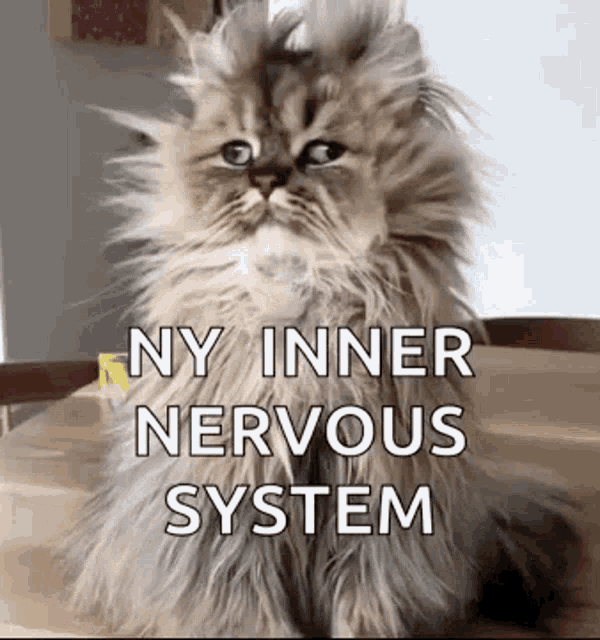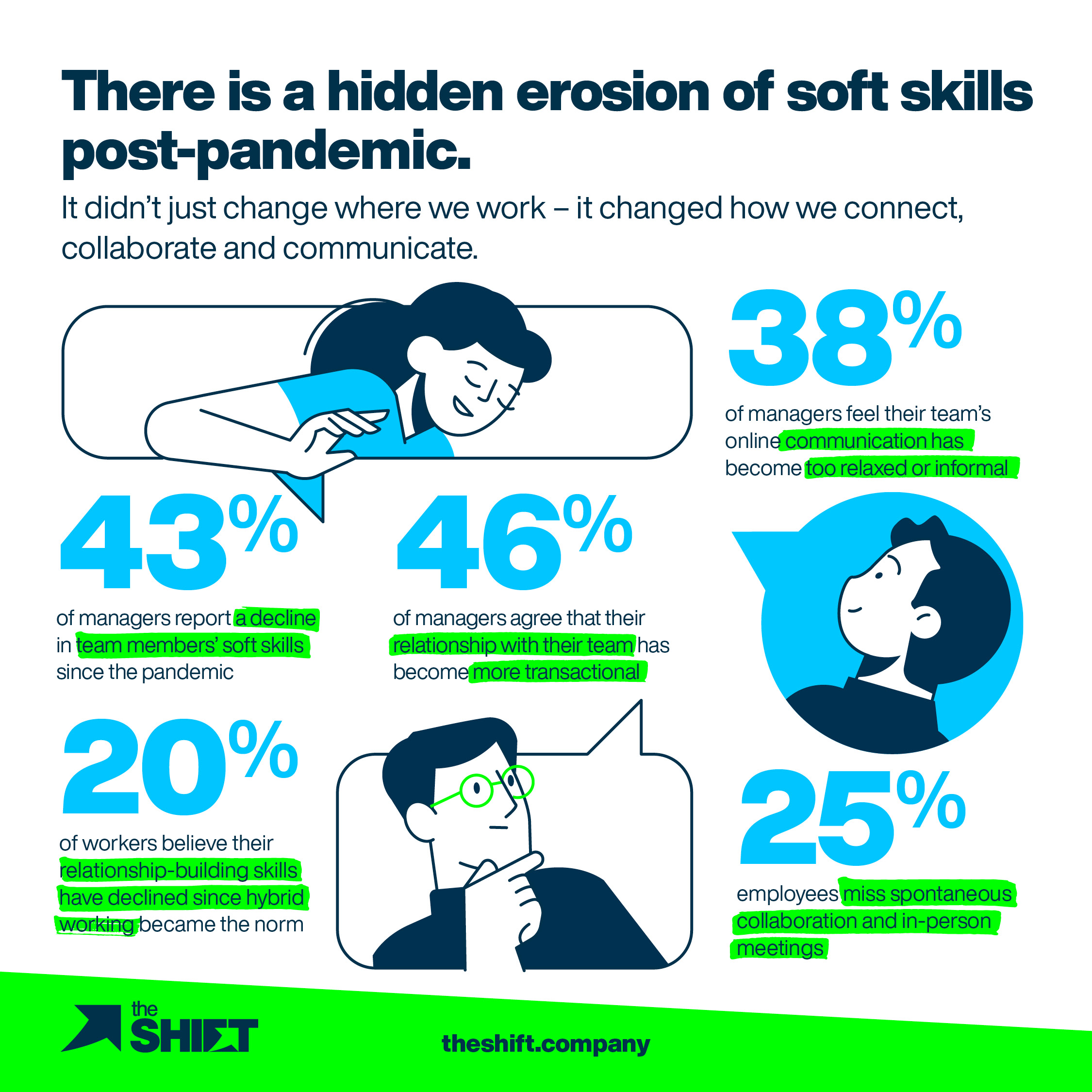If you’ve scrolled through TikTok recently, you might have stumbled across the ‘Gen Z stare’. A trend highlighting the blank, wide-eyed look younger employees are said to give when asked a question.
At first glance, it’s just another viral meme playfully mocking generational differences. But beneath the humour lies something more serious. The ‘Gen Z stare’ isn’t about entitlement, short attention spans or a lack of ambition…
It’s a symptom of a deeper problem: a generational gap in opportunities to develop the interpersonal skills that not only make the modern workplace function but are core to what it means to be human.
A GENERATION DISRUPTED
Before the pandemic, soft skills were absorbed almost invisibly. Young professionals learned by osmosis: overhearing a manager handle a difficult client, watching a leader diffuse tension in a meeting or simply noticing how colleagues built rapport before diving into business. The office was a classroom even if it wasn’t labelled as such.
But the pandemic changed that dynamic overnight. A generation that was just about to enter the office found themselves logging into Zoom calls from their bedrooms instead. What would once have been a slow, steady socialisation into workplace norms turned into something altogether more stunted.
And while we might be out the other side, the aftershock remains. Hybrid working has many benefits, but less face time means fewer unscripted learning moments, fewer opportunities to practise soft skills in low-stakes settings and fewer chances to see experienced professionals model behaviours in real time. Research by theSHIFT found 43 per cent of managers had noticed a decline in soft skills since the pandemic. Rising concerns about transactional relationships, overly casual communication and a lack of connection to leadership were also recurring themes.
A nervous system still recovering
There’s also a psychological dimension that is often overlooked. The pandemic didn’t just disrupt working practices, it disrupted our nervous systems. After months of isolation, many people found in-person interaction more draining than it had ever been before and we haven’t fully bounced back. This effect was especially pronounced for younger generations who have already been dubbed the anxious generation.
For many, those early formative years of social and professional development were replaced with digital stand-ins. As a result, live interaction now carries a heavier emotional load. The prospect of presenting to a room, handling a difficult client call or even building small talk with colleagues can feel disproportionately taxing.

Why it matters and what we can do
Soft skills aren’t just nice to have; when these skills deteriorate the effects can be felt in the bottom line. It’s not only a cultural issue, it’s a business issue.
Misunderstandings become more frequent and difficult conversations are harder to resolve. Emails replace conversations. Transactions replace relationships. Over time, the very sense of connection that keeps employees engaged and clients loyal can begin to unravel.
Gen-Z are the future of our workforce. If these skills are not nurtured now, it will become increasingly harder to instil them in managers and leaders of the future. This is not something organisations can put off or hope will resolve by itself.

To future-proof their cultures, organisations must actively rebuild relational skills and create new rituals of collaboration. The days of assuming employees will absorb soft skills through osmosis are over. In today’s hybrid and AI-powered workplace, soft skills like communication, collaboration and relationship-building need to be trained and supported.
Leaders also now need to be intentional about designing moments of connection with their employees. Many of the informal moments of connection that happened organically have disappeared: we rarely gather at lunch, we don’t get to shoot the breeze on the walk back to the train station after a meeting. This disproportionately impacts Gen-Z who are not only already at a disadvantage when it comes to building relationships but, compared to their millennial and boomer counterparts, Gen-Z staff are yearning for more in person interactions. A recent Gallup survey, which called Gen-Z the “loneliest generation”, found that they are the least likely age group to want to work entirely from home.
To this point, culture doesn’t just live in the office anymore; it lives in the micro-interactions. Organisations that invest in the behaviours, habits and rituals that reinforce the culture they want to see will be the ones that close the soft skills gap and build truly future-ready teams.
It’s important to state that none of this is an argument for dragging everyone back into the office full-time. Hybrid working is here to stay and there are many benefits that can be reaped when we’re intentional about it. But we need to acknowledge that something valuable has been lost along the way – and unless we adapt, the gap will widen.
So whilst the “Gen-Z stare” might have started as a joke, it highlights something important about the future of work: that the ability to flourish will ironically depend on our ability to nurture and develop our human skills.

